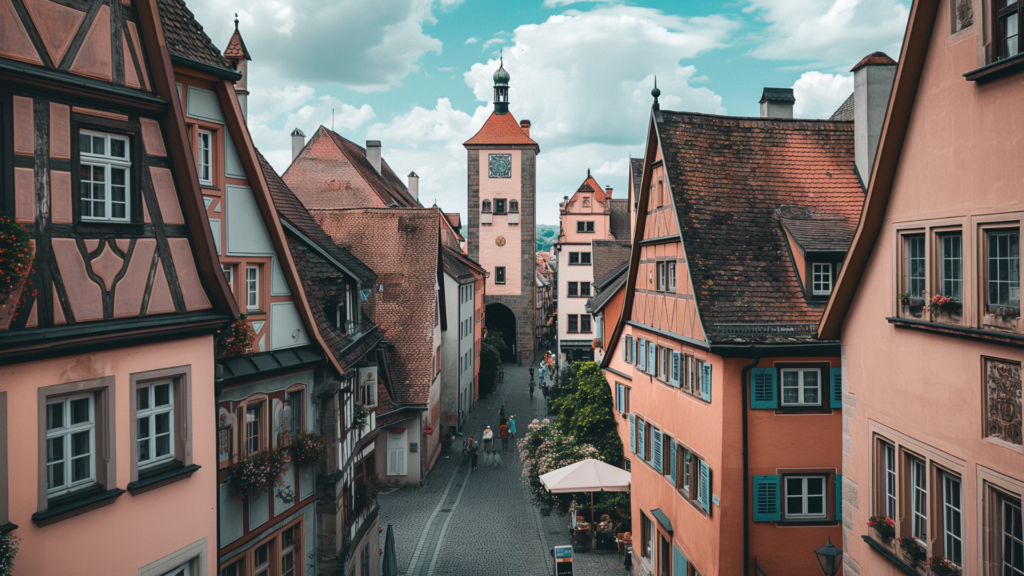When planning a trip to Germany, it’s best to adapt the German no-nonsense attitude while learning about its vibrant culture.
For travelers eager to fully immerse themselves in the German experience, understanding local customs, language, and etiquette is vital. You wouldn’t want to ruin your trip with a humiliating debacle, after all, especially in a country notoriously known for being no-nonsense.
With that, here are some key things to keep in mind when planning a trip to Germany!
Language Tips
Navigating Germany with some basic German phrases under your belt can make your journey a bit smoother and more enjoyable.
Begin with common greetings like “Hallo” (hello) and “Guten Tag” (good day), which are essential for daily interactions.
For practical directions, familiarize yourself with phrases such as “Wo ist…?” (Where is…?) or “Kann ich bitte…?” (Can I please…?).
In dining scenarios, knowing how to say “Ich möchte…” (I would like…) and “Die Rechnung, bitte” (The bill, please) can enhance your restaurant experiences.
To bolster your language skills while planning a trip to Germany, consider using interactive apps like Duolingo and Memrise. Online courses offered by platforms like Coursera can be ideal as well if you’re really looking to be a polyglot. Nonetheless, these resources are invaluable for building your confidence in German before and during your trip.
Cultural Norms and Etiquette
You know those stereotypes about ignorant and annoying tourists? We know you wouldn’t want to be one of those.
Understanding and adhering to German etiquette is a definite must, starting with:
Everyday Interactions
- GREETING ETIQUETTE: When greeting someone in Germany, a firm handshake and direct eye contact are common.
- PUNCTUALITY: Germans highly value punctuality, so make sure to arrive on time for appointments, meetings, and social gatherings.
- FORMALITY: Germans also tend to be more formal in their interactions, especially in professional settings. Address people using their titles and last names unless invited to engage on a first-name basis.
- PERSONAL SPACE: Germans value more privacy and personal space than the average European, so avoid standing too close to others during conversations.
- GIFT GIVING: If invited to someone’s home, it is customary to bring a small gift like flowers, wine, or chocolates. Remember to give an odd number of flowers, avoid red roses, and unwrap gifts immediately.
Dining Culture
- MEAL ETIQUETTE: In Germany, it’s polite to wait until everyone is served before eating. Keep your hands visible on the table, with your wrists above the table’s edge.
- TIPPING: Rounding up the bill or adding a 5-10% tip in restaurants is customary and appreciated.
- MEAL TIMES: Lunch typically occurs between 12:00 and 14:00, and dinner from 18:00 to 20:00.
Public Conduct
- DRESS CODE: Be deliberate about your choice of clothes while planning a trip to Germany. Opt for smart casual attire when in doubt. That’s because most Germans generally dress conservatively and neatly, which they also prefer for their guests.
- TRANSPORTATION ETIQUETTE: Offer your seat to elderly or disabled passengers (as you should anywhere else), and refrain from loud conversations or eating on public transport.
- POLITENESS: Frequent use of “Bitte” (please) and “Danke” (thank you) goes a long way in showing respect.
- RESPECT FOR RULES: Germans are known for their adherence to rules and regulations. Follow traffic rules and recycling guidelines, and always respect the queue, waiting patiently for your turn.
Festivals and Public Holidays
While Duolingo gets you far in terms of conversational skills, nothing beats actual cultural immersion. Engaging with German festivals offers a firsthand look at the country’s festive traditions and communal spirit.
Planning a trip to Germany during Munich’s Oktoberfest requires early preparation. With that, book accommodations and tickets well in advance. Each tent at the festival has its own unique atmosphere, so choose one that aligns with your preferences.
The Christmas markets in cities like Nuremberg, Dresden, and Berlin are not to be missed either. They offer a delightful array of German handicrafts and culinary delights such as glühwein (mulled wine), lebkuchen (gingerbread), and stollen (fruit bread).
Understanding German History
If you’re the type that prefers calm, contemplative environments over festivities and crowds, don’t worry!
Visiting significant historical sites such as the Berlin Wall, Neuschwanstein Castle, and various Holocaust memorials provides deep insights into Germany’s complex past.
The Pergamon Museum in Berlin and the Deutsches Museum in Munich are likewise treasure troves of historical, cultural, and scientific knowledge.
These sites are crucial for understanding the narratives that shaped modern Germany and help you understand the nation’s contribution to art and science.
Start Planning a Trip to Germany with ThisCityKnows
Planning a trip to Germany with an appreciation for its culture and traditions is key to a fulfilling travel experience. By learning the language, understanding etiquette, and immersing yourself in local customs, you can surely connect more deeply with both the people and the heritage of Germany.
Consider enhancing your journey with key insights from ThisCityKnows! Our platform houses guides, booking recommendations, and up-to-date travel insights on destinations across the globe. Dive into every adventure, well-equipped and well-informed, with ThisCityKnows!
